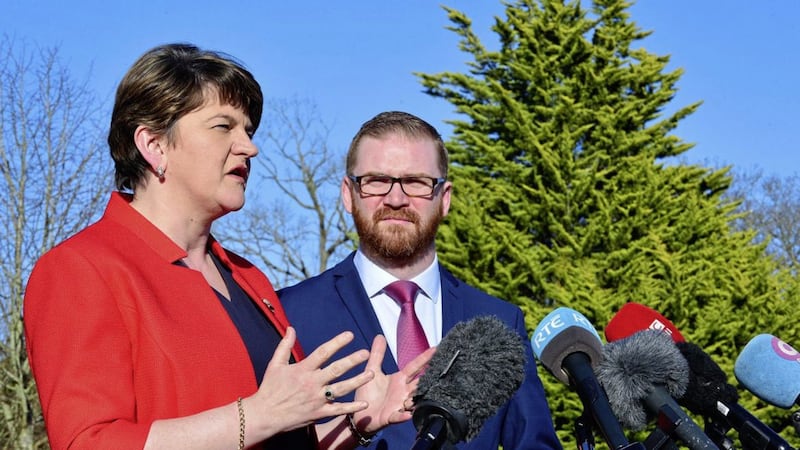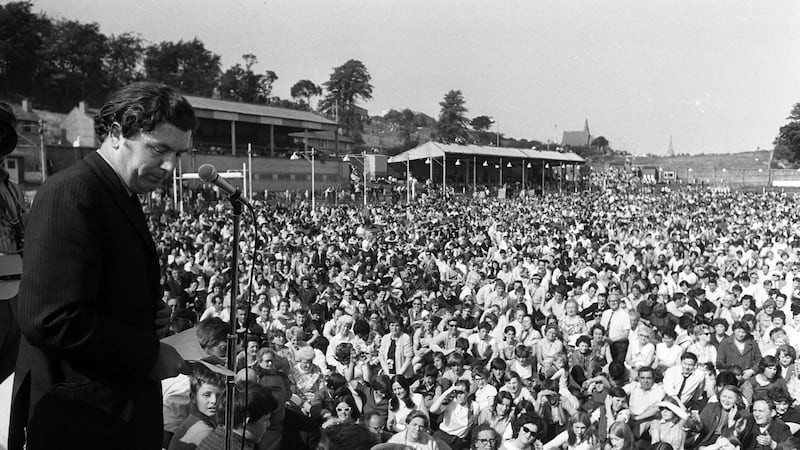ARLENE Foster has warned Sinn Féin it is "dangerous" to dictate to other parties who they should nominate for government positions.
Sinn Féin has repeatedly said it will not support the DUP leader as first minister until her role in the Renewable Heat Incentive (RHI) scandal has been clarified by an inquiry.
But Mrs Foster yesterday revealed that the issue of her taking up the top post at Stormont has not been raised directly with her by Sinn Féin.
She added: "If we get into a situation where we are telling each other's parties who they should nominate for positions that becomes very dangerous, because we will obviously have an indication around Sinn Féin as to who they nominate."
Talks between political parties are ongoing in a bid to restore the power-sharing government at Stormont.
Northern Ireland secretary James Brokenshire and the Republic's foreign minister Charlie Flanagan have also been meeting with parties in a bid to broker a deal.
Mrs Foster described the dialogue between parties as being "in a very good nature".
She also said that the DUP has been in talks with Sinn Féin about legacy issues, which have become a major source of friction between the republican party and the DUP and British government.
Earlier Sinn Féin accused the British government of "holding up" justice for families whose loved ones were killed during the Troubles.
The party's northern leader Michelle O'Neill said that funding for legacy inquests is a key issue for Sinn Féin as part of negotiations into the restoration of the power-sharing executive.
On Tuesday Sinn Féin broke off its meeting with Mr Brokenshire, saying all he did was "waffle, waffle and more waffle".
Ms O'Neill claimed he had still not agreed to release funds for legacy inquests.
Following a meeting with Mr Flanagan shortly after he arrived at Stormont yesterday, Ms O'Neill said: "It is a time for strong political leadership and delivery.
"The British government is holding up access to due process for families. They are key players in this. They need to step up to the plate."
Mr Brokenshire said there was a need for "intensification" of the talks as there is only a three-week window for appointments to be made to the executive and the appointment of first and deputy first ministers and other ministers.
He said there had been helpful discussions with the parties and that he had discerned "real commitment from the parties to get back into government and an executive and deliver for Northern Ireland".
Mr Flanagan joined Mr Brokenshire to meet with the parties and facilitate talks aimed at restoring the Stormont institutions.
As he arrived at Stormont Castle, he said: "This is a very important opportunity to restore the power-sharing institutions in accordance with the Good Friday Agreement.
"We are operating under a very strict time-frame.
"I detect a willingness on the part of all the parties involved to sit down and engage constructively."
SDLP leader Colum Eastwood said it was "imperative" that negotiations deliver a return to power-sharing government to tackle issues such as Brexit.
"It is now time to secure a positive accommodation between nationalism and unionism that allows us to meet the challenges that we all face," he said.
The recent election ended the unionist majority at Stormont with Sinn Féin now just one seat behind the DUP.
Sinn Féin and the DUP now have three weeks to reach a deal and if a government cannot be formed within that time then, under law, another election can be called.
If no power-sharing government is formed, power could return to Westminster for the first time in a decade.


